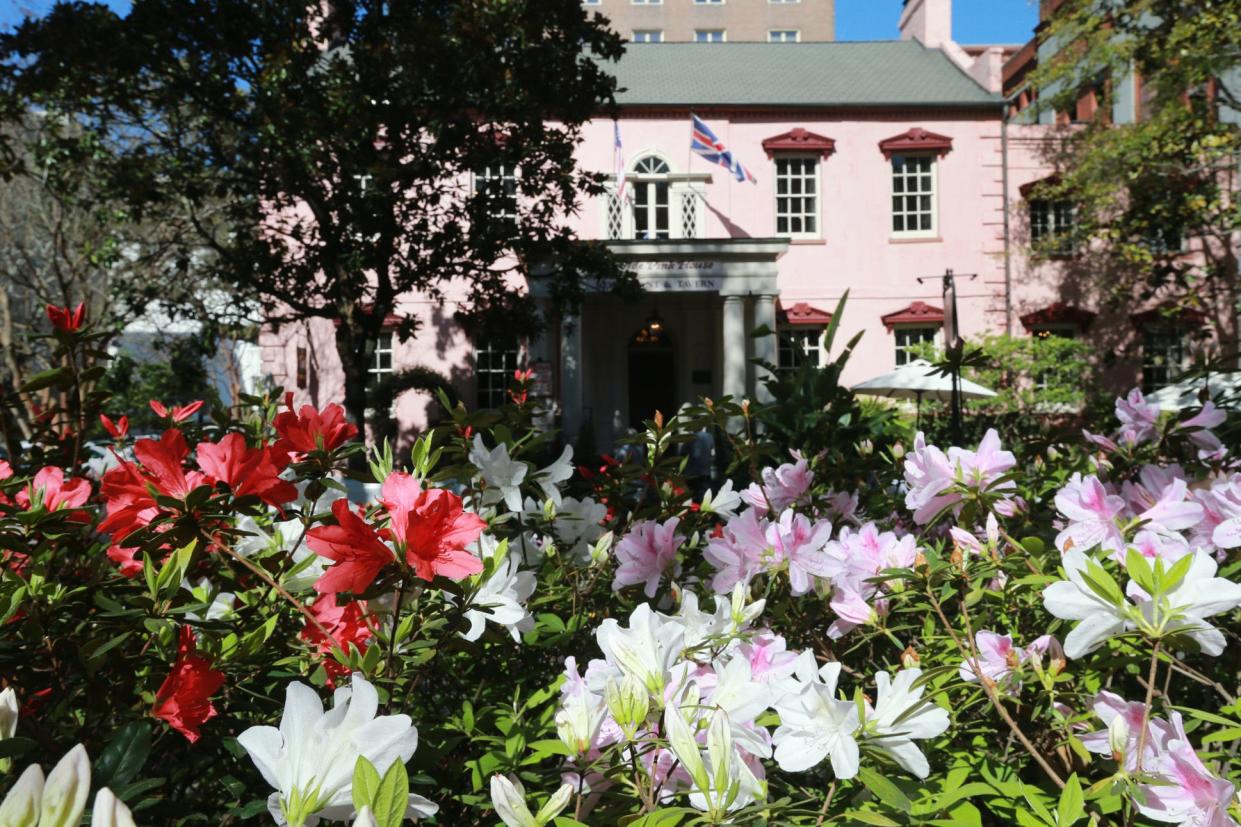'Ma Nature' expected to nurture warm spring in Savannah under climate change's influence

Oh, the barnyard is busy in a regular tizzy,And the obvious reason is because of the seasonMa Nature's lyrical, with her yearly miracleSpring, Spring, Spring.
Seventy years after Savannah’s own Johnny Mercer penned those lyrics, Ma Nature is expected to follow her own familiar script for coastal Georgia’s miraculous metamorphosis.
Spring is likely to be warmer than usual in Savannah and across Georgia this year, according to the latest long-term forecast from the National Oceanic and Atmospheric Administration’s Climate Prediction Center.
That’s nothing new. Thanks to warming fueled primarily by heat-trapping pollution from the burning of fossil fuels, average spring temperatures have climbed considerably locally and over much of the Southeast over the past 50 years.
Savannah’s historical average temperature for March through May – considered the meteorological spring season – is 66 degrees. The area has dipped below that mark just three times over the past-quarter century, data from NOAA’s National Centers for Environmental Information shows.
More recently, springtime in Savannah over the past decade has been warmer than any 10-year period in NOAA records dating to 1948. The average March-through-May temperature since 2104 has been 68.3, or 2.3 degrees above normal.
Nine of the 11 warmest springs in Savannah have come since the turn of the century, including the balmiest ever in 2020, when the average temperature was more than 4 degrees above normal.
Suns gettin' shinery, To spotlight the finery,Spring, spring, spring
The Savannah area also is experiencing more instances of extreme spring heat.
Thirteen of the 20 highest annual average maximum temperatures for March, April and May have been recorded since 2000.
Nights have also been toastier, with nine of the 14 highest annual minimum temperatures for the spring period coming in the last 14 years.

Sneeze-worthy: Earlier pollen season in Savannah? Climate change the 'main culprit'
Every field wears a bonnetWith some spring daisies on it,Even birds of a feather show their clothes off together.
Why does Ma Nature’s hot spring breath matter?
“Warmer springs would mean changes in bloom-out and flowering, which has implications for allergy response, agriculture and (bird) migration patterns,” explained J. Marshall Shepherd, director of the University of Georgia's Atmospheric Sciences Program. “I don’t want to start sneezing earlier due to early pollen, but I do.”
He’s not the only one.
“What scientists have discovered is that every year the pollen season starts earlier and lasts longer,” said Alan Harvey, a Georgia Southern University biology professor who has studied the science and cultural context of pollen.
Experts also agree on what’s driving this trend.
"Climate change issues are the main culprit,” Harvey said.
Earlier arrival of warm conditions also impacts the number of “chill hours” trees need while dormant to produce blossoms and fruit, including Georgia’s signature peaches, noted State Climatologist Bill Murphey with the state’s Environmental Protection Division.
Too few periods with temperatures of 45 degrees or less can lead to decreases in fruit production.
Saltwater intrusion: Savannah National Wildlife Refuge goes with flow to combat climate change
Yes siree spring disposes That it's all one supposes, It's a real bed of roses, Waggin' tails, rubbin' noses
NOAA’s latest long-term forecast supposes a spring that is rainier and warmer than usual in coastal Georgia and across the state, but it doesn’t dispose of exceptions to those trends, cautioned Ron Morales, warning coordination meteorologist in the National Weather Service’s Charleston office.
“Even though there are higher chances for above normal temperatures and precipitation through this period, that does NOT mean that every day will be hot/warmer than normal and/or rainy/wetter than normal,” Morales wrote in an email.
As long-time residents of the Savannah area well know, Ma Nature’s mood swings can upend a weather trend without notice. Just think of those surprising showers that weren’t in the forecast and escape radar.
That variability can pose a particular threat in early spring, suggested Murphey, the state climatologist.
The earlier onset of warm conditions tends to wake plants and trees from their winter slumbers sooner.
“The timing of leaf-out and blooms for central and south Georgia followed by any possible late frost or freeze events would be impactful,” Murphey said.
Some parts of inland Georgia dipped below freezing last week but coastal areas, warmed by ocean temperatures above 60 degrees, stayed safely above that.
In Savannah, the average last day with temperatures of 32 degrees or less is Feb. 28, although a procrastinating Ma Nature – perhaps preoccupied by a particularly perplexing tax return – waited until April 16 in 1962 for her final freeze.
Each day is mother's day,The next is some other's day When all is king
John Deem covers climate change and the environment in coastal Georgia. He can be reached at jdeem@gannett.com
This article originally appeared on Savannah Morning News: Savannah to feel heat of climate change in spring, forecasters say

